The French villages welcoming Britons back with open arms
![Bruno Merlaud, who runs a convenience store in the Dordogne village of Verteillac: ‘[Brits] are a clientele I appreciate enormously’](https://s.yimg.com/ny/api/res/1.2/3MWj4VmW3YXwdVfBzHmvyg--/YXBwaWQ9aGlnaGxhbmRlcjt3PTEyNDI7aD03NzM-/https://media.zenfs.com/en/the_telegraph_258/0ffc4efee8650cee37571f09685aed6d)
Sitting in his cramped office in the heart of the picturesque Dordogne village of Verteillac, Bruno Merlaud smiles. Behind him is a box of teabags featuring a union flag and the words Keep Calm and Carry On. “Keep this under your hat. I would say that one in 10 Britons are twits. That compares with nine out of 10 French. Now there are fewer of you, it makes me sad. They are a clientele I appreciate enormously,” he says.
The 56-year-old Frenchman runs Merlaud et Ses Fils, a Tardis-like convenience store that appears small and unassuming out front but once inside morphs into an Aladdin’s cave selling everything from groceries to gardening gear, fishing tackle to ovens. Locals like to quip: “If you can’t find what you’re looking for in Harrods, come to Merlaud.”
The jokey nod to the luxury London store is no coincidence; Verteillac and the lush green countryside of the surrounding Périgord Vert are awash with Britons who started coming over decades ago. Attracted by the area’s mild climate and old farms and chateaus, remnants of the Hundred Years War, not to mention the foie gras, truffles and cep mushrooms, they bought up first and second homes in droves.
Hence the store has a British food section offering everything from cream crackers to Colman’s mustard, an impressive array of kettles and some heavy-duty Stoves double ovens that Merlaud says are a hit with the Brits.
His family have owned the store for four generations, each one making it bigger, but right now he fears for its future. “We have suffered a significant drop in British customers and it’s a shame,” he laments. “The numbers are down, that’s crystal clear.”
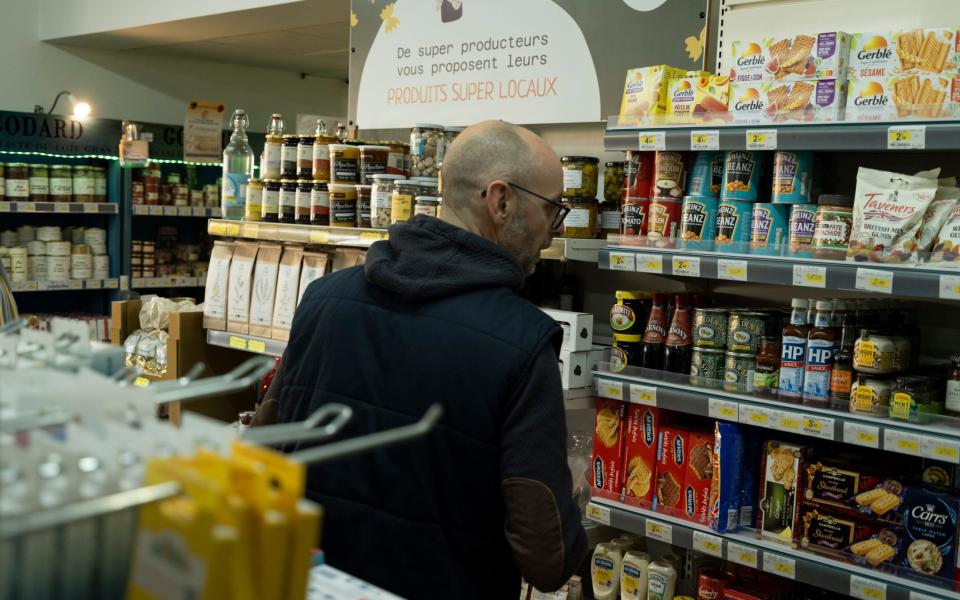
Beyond the “original sin” of Brexit, he blames “the 90-day rule”. Since 2021, British passport holders, like other non-EU nationals, cannot remain inside the Schengen area more than 90 out of every 180 days unless they have a visa or stay permit. The days are counted backwards from the day of entry, with the 180 days as a whole calculated as a rolling period. This means that if you stay 90 days continuously, you cannot re-enter the area until another 90 days have passed.
“There are more Belgians but they buy less. The Dutch bring everything with them. They are tough in business. I like the British state of mind. Several customers came to see me to bid farewell. My biggest fear is that they’ll all leave,” Merlaud says.
But tantalising news that British second homeowners may soon be exempt has given him reason to hope: an amendment to this end passed through the French Senate this month but must now be approved by MPs in the National Assembly next month.
Martine Berthet, the senator who tabled the change, said Britons should have “special” status in view of “the unique links that unite our two countries and the importance of this community for the French economy”.
Merlaud agrees: “They should be able to come and go as they please. It’s a shame to limit them.”
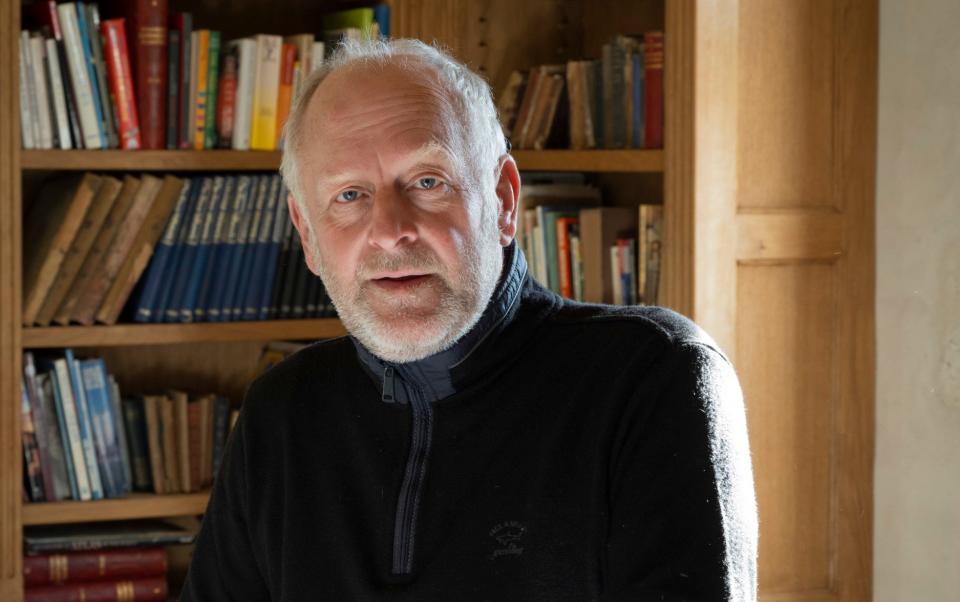
He’s not the only one who would like to see the rule ripped up.
Fifteen minutes down the road, from the grounds of a 17th-century chateau once frequented by Marie-Antoinette, Trevor Leggett gazes at the village of Rochebeaucourt-et-Argentine. A plasterer by trade, Leggett set up his first estate agency in the village more than 25 years ago. Today, he and company director Joanna Leggett run one of the biggest networks in France, notably for British buyers, with 100 employees and headquarters in Rochebeaucourt.
The village was, both insist, “falling down” until they took it in hand, doing up a dozen buildings including a butchers, bakers and former monastery, to house an IT and call centre, among other things. Work is under way to build a hotel. Little wonder locals jokingly call the place “Leggett land”.
“The 90-day rule has been a real break on sales, massive. The holiday-home market for Brits has gone down the pan,” he says. “We’re talking about all the parts of the country that Brits normally go – Normandy, Brittany, Charente, Charente-Maritime, Dordogne, Limousin, the whole of the south-west area – Languedoc and Carcassonne, The Alps less so.” The war in Ukraine compounded the problems.
Joanna Leggett adds: “Two years ago, Britons were the top international buyers on 23 per cent, but they’ve been overtaken by the Belgians, who are not affected by the rule, and are now down to 17 per cent.”
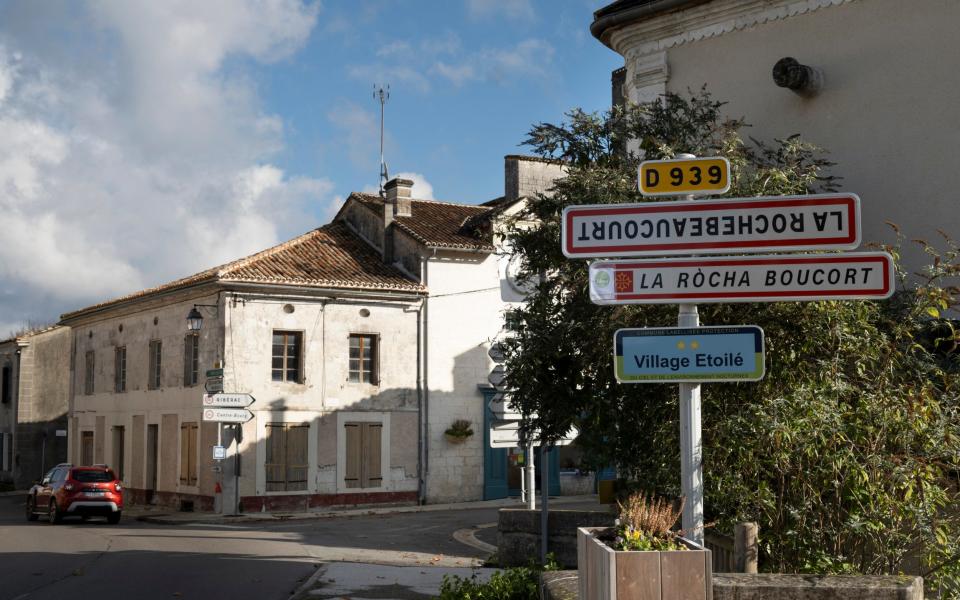
Their friend and near neighbour, Hannah Marcus, 34, who runs the Chez Hannah restaurant in nearby Cherval, says: “The majority of our clientele used to be British holiday homeowners who owned houses for years and years. Most have sold up and they don’t come out here any more because they can’t spend as much time as they wanted. I think there must be about 40 different houses from our village that have gone.”
That has had a knock-on effect on local businesses. One of the Leggetts’ many properties in Rochebeaucourt is a restaurant called Les Cluzeaux. It thrives in the summer months, but the slump in custom outside the season has led Trevor Leggett to consider closing it in winter altogether. “We are packed for the three months but either side of the season where we would have been busy from Easter all the way to September, it’s now very quiet,” he says.
Second homeowners generally spend more than permanent residents and the French, though the Belgians and the Dutch, as well as Parisians and Bordelais, have taken up some of the slack, as have a growing number of Britons aiming to buy French properties as their main residence and then travel back to the UK when needed.
“In seminars at A Place in the Sun exhibitions (a spin-off of the Channel 4 TV series on seeking a “perfect property” abroad), there used to be a 50-50 split between people wanting to move permanently and those wanting holiday homes,” says Joanna. “Now it’s 80 per cent permanent, so it’s really shifted.”
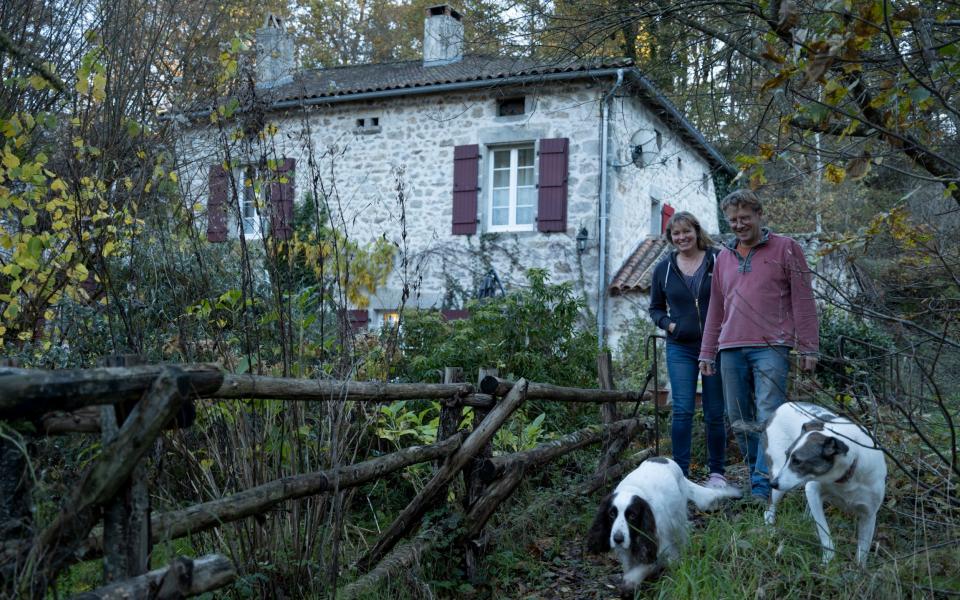
But not everyone wants to choose between short-stays or permanent residency, notably many retired people or those who work from home for long periods. One of them is Christopher David from Cardiff, a semi-retired businessman who, with his partner Jane, bought a ramshackle barn and stables in 2011, renovating the buildings and embracing village life. They had planned to split their time between Wales and France, which is currently a painful ordeal.
“To stay more than 90 days in our French home we need a six-month visa and the only place we can get it is in person in Manchester or London. It’s outsourced to a company that’s inefficient and rude. We have to reapply every year and put a detailed file together including proof of our French residency, our Welsh residency, three months of bank statements and provide fingerprints. It’s costly and time-consuming.”
And yet he says: “We are owners who genuinely consider ourselves residents in Wales and in France. We’re known to everyone, very involved in the community, do volunteer work, and pay property taxes. I love the French lifestyle. We bought a modest place, somewhere the French would never have bought because they generally don’t like renovating. And in doing so, we have helped upgrade the village.”
David has joined forces with thousands of others on Facebook’s France Visa Free group calling for change. He has communicated with Lord Touhig, the secretary of the UK Parliament’s all-party group on French affairs, who has been supportive and has sounded out French MPs, some of whom are fearful of a British exodus.
They now have “36 deputies on our side” as the amendment to the Immigration Bill goes to the next stage in December. “Our own deputy in Charente is in full support and our local mayor too.”
Another supportive mayor is Stewart Edwards. The 76-year-old, originally from Northamptonshire, arrived in the beautiful village of Abjat-sur-Bandiat nearly 35 years ago. Smitten by the charm of the old stones and green, rolling countryside, he and his wife, Sue, long ran the Entente Cordiale bar-restaurant, turning it into a hub of Franco-English integration complete with darts and skittles.
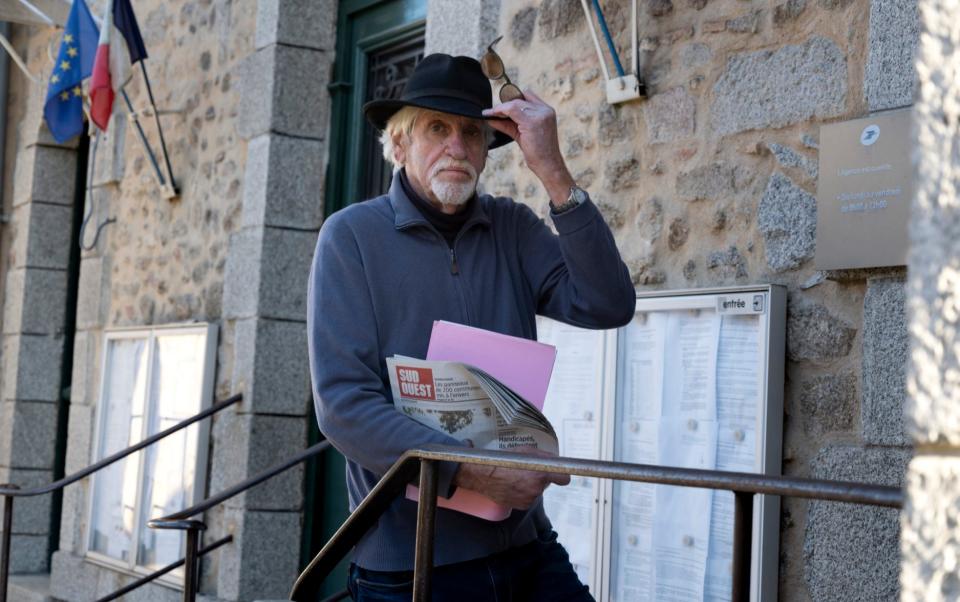
He also introduced the village, population 650, to the joys of conkers, found in abundance there, and turned the village into the undisputed French capital of the sport. Today, Abjat is home to the National Conker Championships, the French national conkers squad and the Fédération Française des Conkers.
Today Abjat has among the highest proportion of Britons per capita in France – about 20 per cent.
When the French mayor passed away unexpectedly last month, Edwards, his deputy, took over as interim mayor and this week presided over his first council meeting.
So how do his fellow French villagers see the brake on British holiday-home stays? “I think some are mildly unhappy with it. Others are happy. It depends on who you speak to,” he says. “I walk a delicate line as being of British origin, I’m not universally popular among the local French population. There is a group of people who will not have been happy seeing me laying a wreath at the Cenotaph.
“You have to know that, like a lot of villages, Abjat has a surprisingly high Front National turnout in major elections. Clearly, there are some people who, while not particularly against the English, are extremely pro-French and not unhappy with this rule. Most remain very reserved so it’s hard to know what they think.
“Personally, I think it’s a rather petty example of the French playing tit for tat and having more tit on their side than tat on the other. I think they’ve lost sight of the big picture and let Anglo-French differences spill over into something that they didn’t need to bother with really.
“When you look at the bar in this village, it largely depends on the British clientele. I’m not saying the French don’t drink, they do, but in terms of people on a wet November evening having a drink at five, six or seven o’clock, the bar can count on the English clientele in a way that it can’t count on the French.”
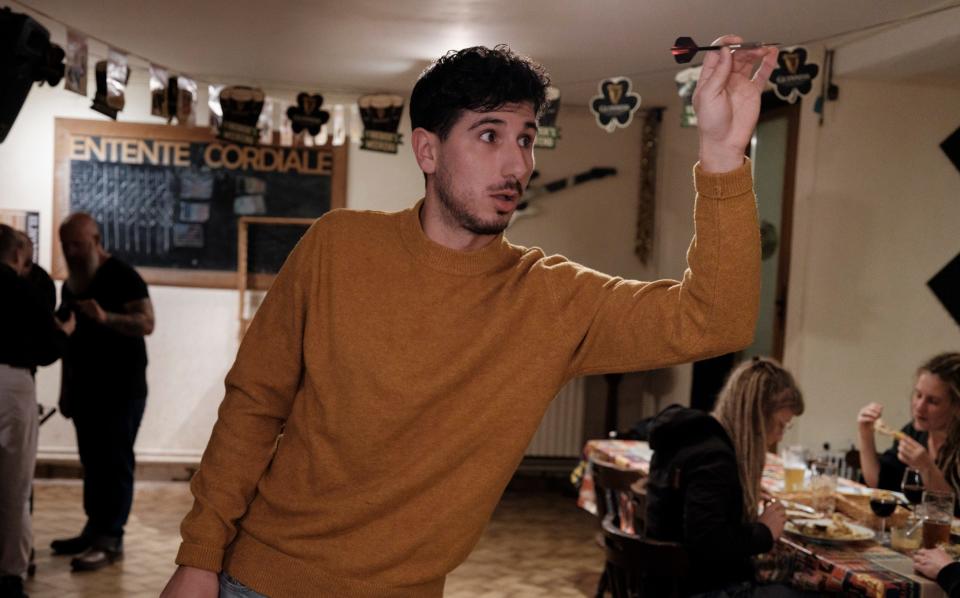
At the Entente Cordiale, not everyone was upset at the prospect of a dearth of British holiday homeowners. “I’ve been looking for a place to rent or buy but given the number of holiday homes I can’t find one,” says French newcomer Lisa Ghesquière, 29. “Lots of homes are only occupied for three months per year. I want to live here full-time and I’m not able to, so for me it’s a problem.”
But Thibaud Laurençon, 28, vice-president of the municipal fete committee, favours reform. “For Abjat, it would be great if this rule was waived. Here isn’t a bar, it’s a pub and we like it that way,” he says, between games of skittles.
Other locals have noticed a shift too. Nik and Heidi Smith, from Norfolk, run a water mill, Le Moulin de Pensol, with 20 acres of butterfly-filled land. “We used to get loads of British house-hunters early season and late season and now we don’t,” says Nik Smith.
Heidi adds: “None of this is huge but it’s all just irritating and unnecessary.
So is there hope that the rule could be lifted? Roger Haigh, head of the Franco-British network in Dordogne, remains optimistic. “I think there’s enough lobby from mayors and other business people who are dependent on the economic input from the British into places like the Dordogne to make them seriously think about it. When people come here they spend money – not just for a two-week holiday but for months. We’re not causing problems for the French coming to the UK for six months at a time, so why should they?”
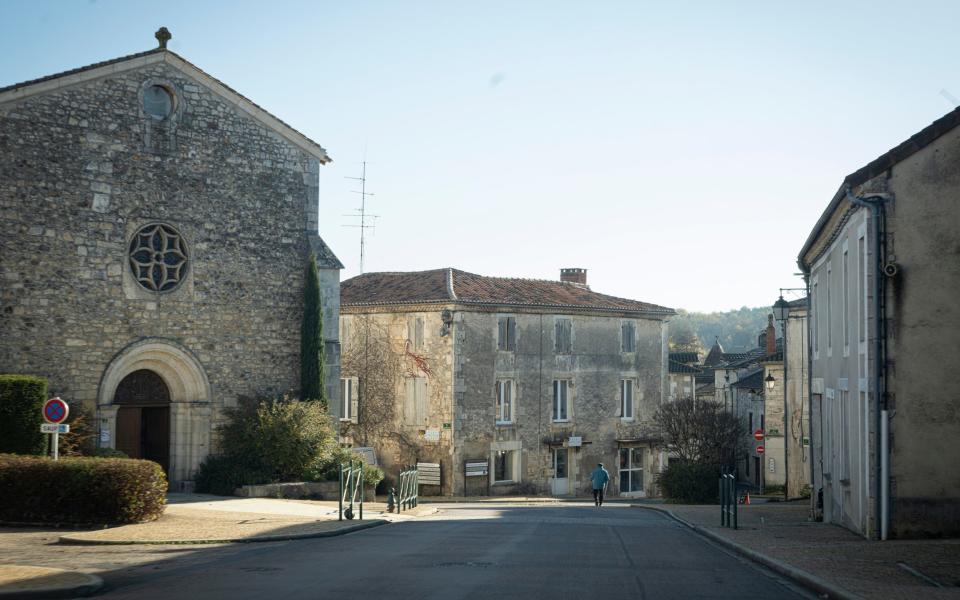
Steve Jolly, 67, a retired teacher from Shelley, Yorkshire, who, with his wife, has a property in Normandy “renovated from a house into a home” over 12 years, has also been leading the online campaign to change the law. It now has 3,500 members. They have bombarded French politicians with four arguments in favour of change.
First, that the current arrangement is not reciprocal. “It’s not fair that my visa waiver into France is limited to 90 days shared across 27 EU countries.” Second, he says, “We pay property taxes yet access to our property is restricted by this rule”. Third, the visa system was never intended for second homeowners. Fourth, “We contribute to the French economy.”
“Two years ago, some people said it’s a waste of time, you won’t get anywhere. But we’ve gained traction with the Senate and now with the National Assembly,” Jolly adds.
“Emmanuel Macron’s governing Renaissance party has expressed some opposition but the door’s not completely shut. They have acknowledged that there is a problem. The current system is hugely time-consuming. To change it is a win-win situation.”

